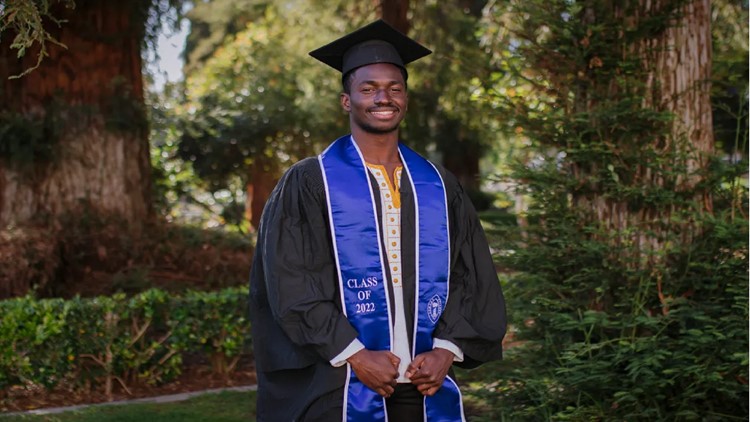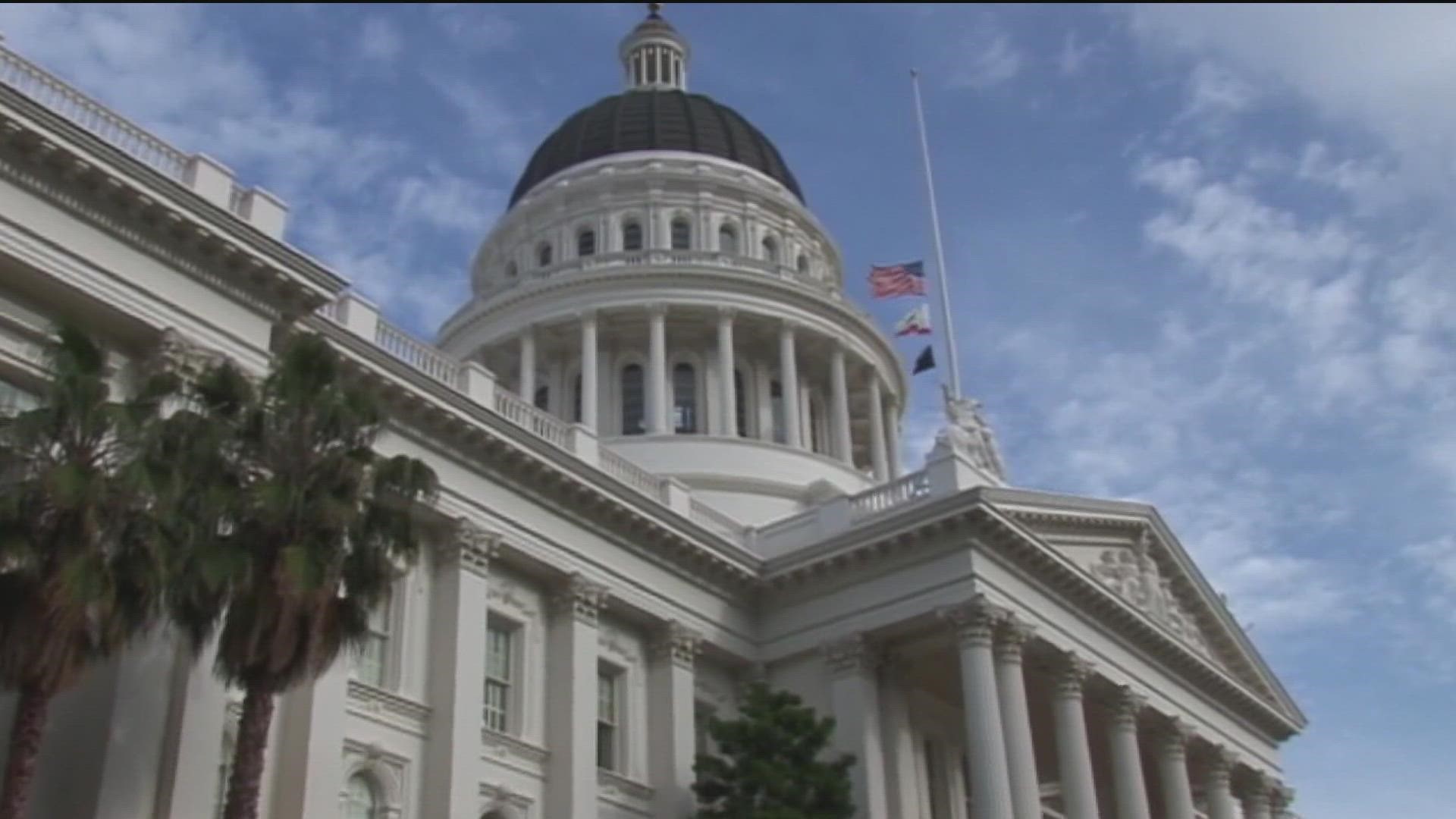CALIFORNIA, USA — This story was originally published by CalMatters.
Eight months into my first year at Cal Poly San Luis Obispo, in May 2021, I visited the university campus for the first time. Because of the pandemic, I was taking class virtually from 200 miles away, and repeated COVID-19 spikes pushed a campus visit down on my list of priorities.
Seeing San Luis Obispo for the first time made me reflect on how I only had one school year to spend in the city and soak up all that was left in my undergraduate experience. Making the most of that time was significant for me — I am a graduate of El Camino College, and transferring to a university from a community college in the middle of the pandemic wasn’t an easy transition.
I made a grand total of five friends during a year of school over Zoom. I clung to the idea that things would be different in the fall, when I moved to San Luis Obispo for my first, last and only in-person year at Cal Poly.
When I got on campus, it felt great but at some points, college felt super lonely. Other times felt overwhelming, and full of grief: I lost loved ones and friends to COVID-19 and other health conditions. I was facing burnout, too.
I know I’m not alone. Going to college during a pandemic has been challenging, stressful, and anxiety-inducing for many students. At least for me, out of those challenges came counting the small wins, like completing an assignment on time or cooking something tasty.
In a month, I’ll be able to walk the stage at a graduation ceremony — something not every graduating class got to experience during this pandemic. That’s a welcome bookend signifying that despite everything hurled at me and my peers, we made it to the end.

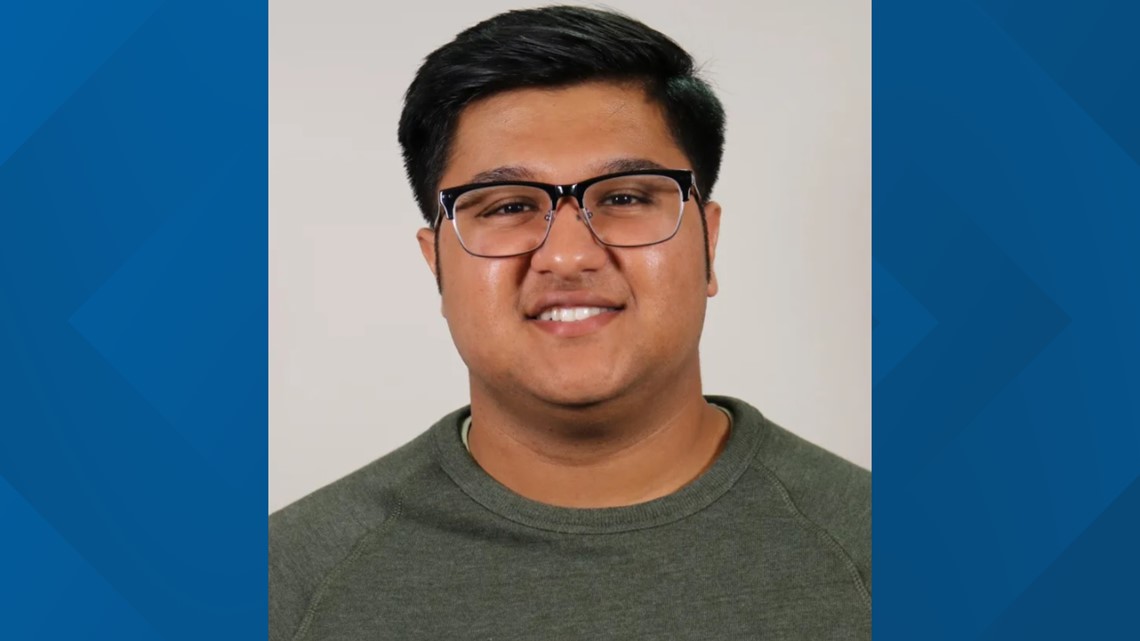
The CalMatters College Journalism Network talked to other California students as they wrapped up their college careers. Here are their stories in their own words — what they’ve learned, how they’ve changed, and what it’s like to navigate college in a pandemic. (Comments have been edited for length and clarity.)
— Omar Rashad

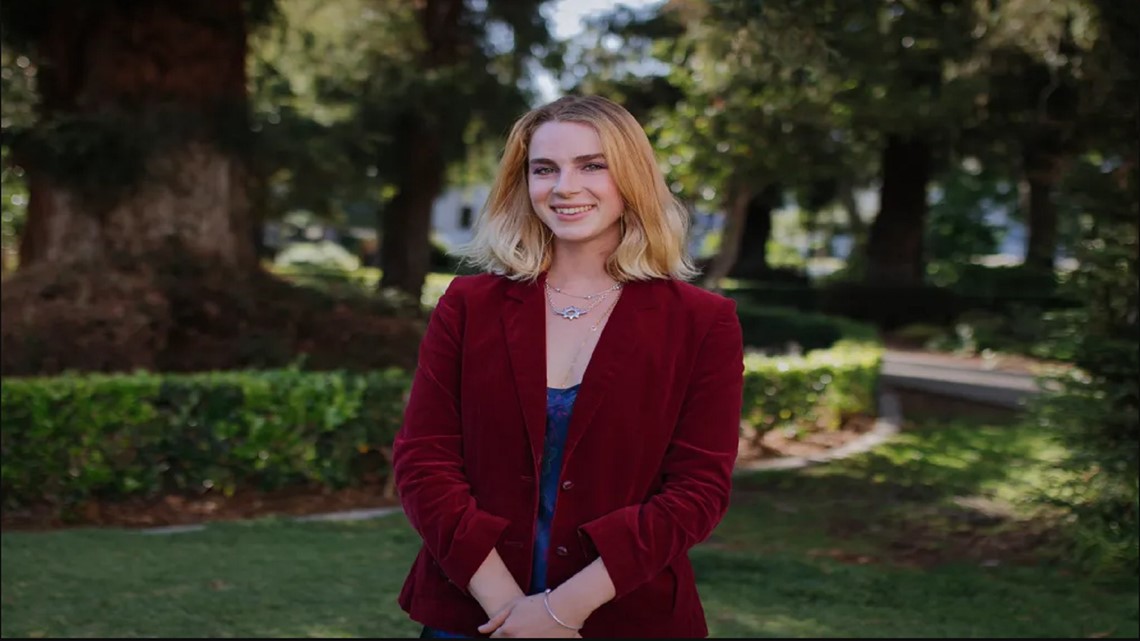
Carrie Young — Scripps College
Art major
I took a year off during the pandemic, so the idea of coming back for my senior year was super strange. I felt like I was living my life — I had a job (at a museum back home), and I was doing all this stuff outside of college. I couldn’t conceptualize being a student again.
When I came back to school, a lot of my initial class had graduated. It definitely felt kind of like coming back to like a ghost town a little bit. It felt like being a freshman again, in a weird way.
Having that year off changed my understanding of what it means to be a student a ton. Having the space away from school was really validating in realizing that I can create a life for myself that’s really wonderful — and where I felt like I was learning a ton and it wasn’t within this super tiny institution.
And then when I came back to school, I think I felt so much more agency in terms of creating that kind of space and those communities at school.
This semester has been the best semester of all of my time in college because I just stopped having the value system of what I’ve been told college should look like. I’ve overloaded myself on things that aren’t school in a lot of really good ways.
I’ve been working at two of the on-campus art centers and teaching classes for those and running the roller skating club. I feel like I’ve gotten really into the things that really matter to me and have not been putting my energy into things that don’t.
— Interviewed by Carolyn Kuimelis

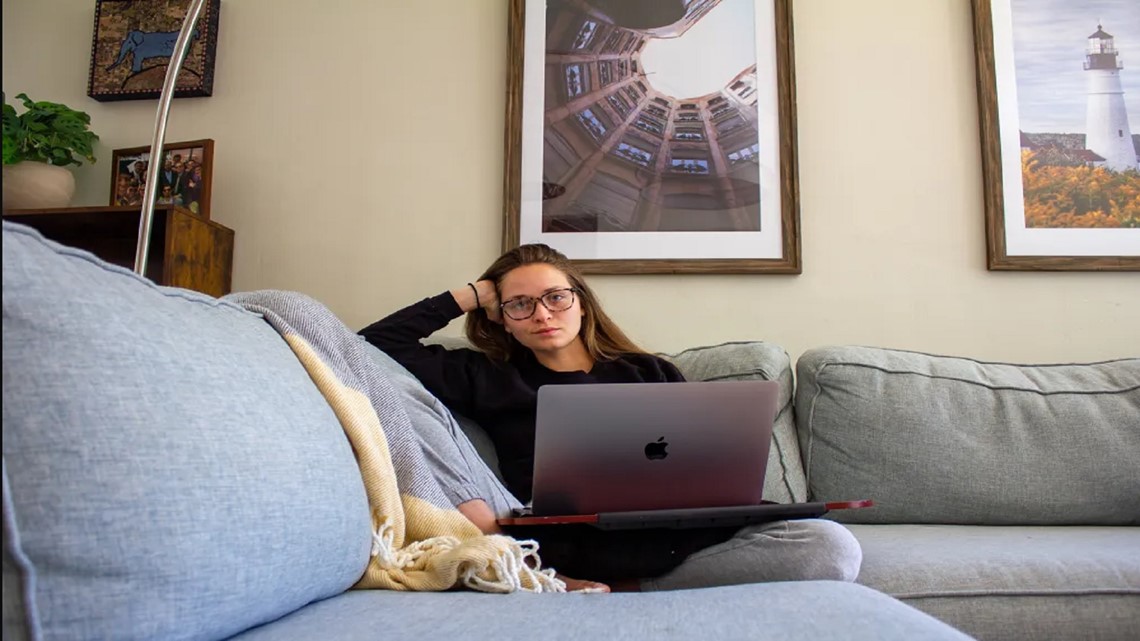
Katherine Castillo — City College of San Francisco
Journalism major
A few months before the pandemic, I started going to City College of San Francisco. One of my boyfriend’s friends said that they were offering free classes for people who were residents of San Francisco. So, I was like, ‘OK, that’s great. Let me go there and investigate what I need.’
I started with just one class, an (English as a second language) class because I was not confident with my English level, and it was in-person for the first few months. And then when the pandemic happened, we started doing online classes. I know it’s kind of hard for many people to do classes online. But I wouldn’t have been able to go to college the way I did, if it wasn’t (for) the pandemic. I don’t have a car and live an hour away from college. I was worried about the commute because I need to work. The pandemic allowed me to do both things at the same time.
Still, I suffered from a lot of anxiety because I’m a first-generation student so I didn’t know what to expect. And I put a lot of pressure on myself. I’m graduating with a 4.0. I feel amazing because of that, but I don’t know if it was worth it to cry every semester because I was stressed.
My counselor, Anastasia, got me through it. She literally changed my life. Every semester I was like, ‘I’m not going to be able to do it. I’m not going to be able to do it.’ I remember crying and meeting with her, and she was always so supportive. I didn’t even know how to register for a class. Anastasia helped me a lot with that because I was super lost.
For many years, I thought about going to college, but I was scared. You start thinking that you’re not intelligent, or it’s not your first language so it might be more difficult for you. I didn’t start because I was afraid. And now that I finished the first two years, it’s like ‘OK, I did it.’ And I did it in a big way — it helps a lot with how you see yourself and your self-confidence.
— Interviewed by Emily Margaretten

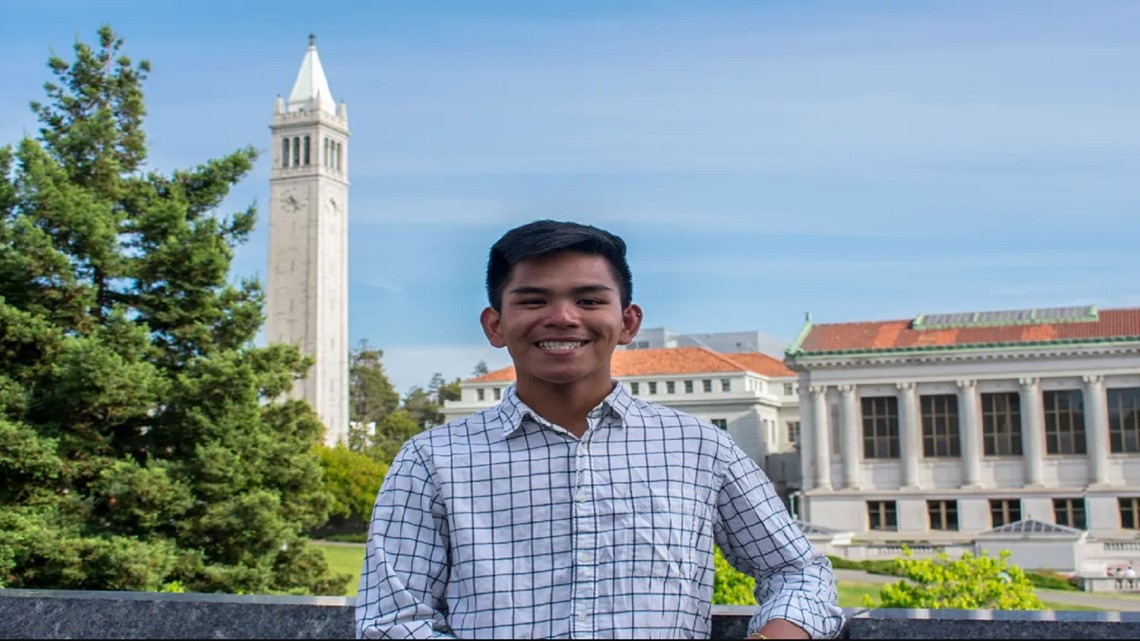
Alejandro Gatus — UC Berkeley
Media Studies major
My experience at UC Berkeley before the pandemic was honestly cinematic. On (Admit Day) 2018, it was sunset and I was walking up this hill towards the Campanile. The light was hitting perfectly. They were playing one of my favorite instrumentals. Just having that scene and realizing that ‘Hey, I’m at my dream school, I accomplished it’— it felt really blissful and it was the start of an amazing journey at Berkeley.
I feel like during my senior year, I’ve been chasing that feeling. I didn’t have any in-person lectures, even during my last semester, even though Berkeley was on a hybrid model. It has kind of been a grieving process, realizing that I may never be in lecture halls again. I will never have another undergraduate experience.
Anyone can always be a student again. There’s masters or doctoral programs, but you can never be an undergrad again. It has made me really sad. What I’ve really taken away is that what matters is the people I surround myself with and knowing that those people will stay in my life.
I’ve felt jealous of the underclassmen who will get a full experience at Berkeley. I have some friends who are in their sophomore year. Being around them and seeing that light in their eyes and the excitement they still carry — that I remember from my first year — eases away the jealousy because then I get excited and optimistic for them that we are getting out of this pandemic and they will get these experiences.
— Interviewed by Itzel Luna

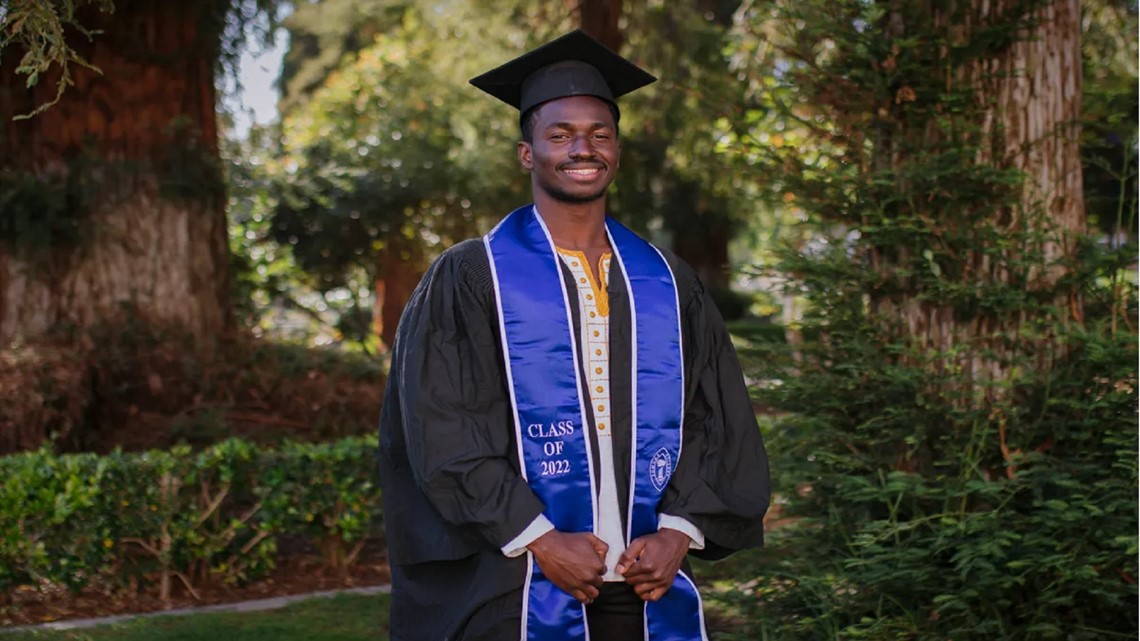
Omar Zintan Mwinila-Yuori — Pomona College
Computer Science major, Math and French minor
(The pandemic) taught me that it’s possible to survive, like, no matter what the situation is.
First of all, I’m abroad. This is not my home (Ghana). And so being in that situation, I feel like a lot could have gone wrong. I could have been really stranded or very lonely or very depressed, but it worked out. So I guess it just showed me that it’s possible to survive or thrive, even in dire circumstances.
My second semester sophomore year, when the pandemic happened and they kicked us off campus, I didn’t have anywhere to go. So my roommate actually took me to his house in Arizona. I lived with him and his family for the rest of the semester.
A lot of things happened during that time for international students. Since school was gonna be online, the government was trying to figure out how visas would work. And so there was this whole scare like, ‘Oh, they’re gonna kick all the international students out of the U.S.?’ I was a bit calm about it. Part of the reason why I was not very worried was because of my faith. My faith was something I was able to rely on for just, like, stability in a time of instability.
One thing I’ve learned through college is that friendships are a valuable thing to have. Especially when unseen circumstances happen, like the pandemic, your friendships are the things that you lean on to help you to keep going. The pandemic made me value my friendships more.
I’m going to move to the Bay Area to start working, like late August. I’m going to be working as a software engineer at Google. I’m not really scared about moving to the Bay, even though I’ve never been there before. I’m not worrying about it because we’ve been through this already, like, I’ve been through a similar situation or worse situation.
— Interviewed by Elina Lingappa

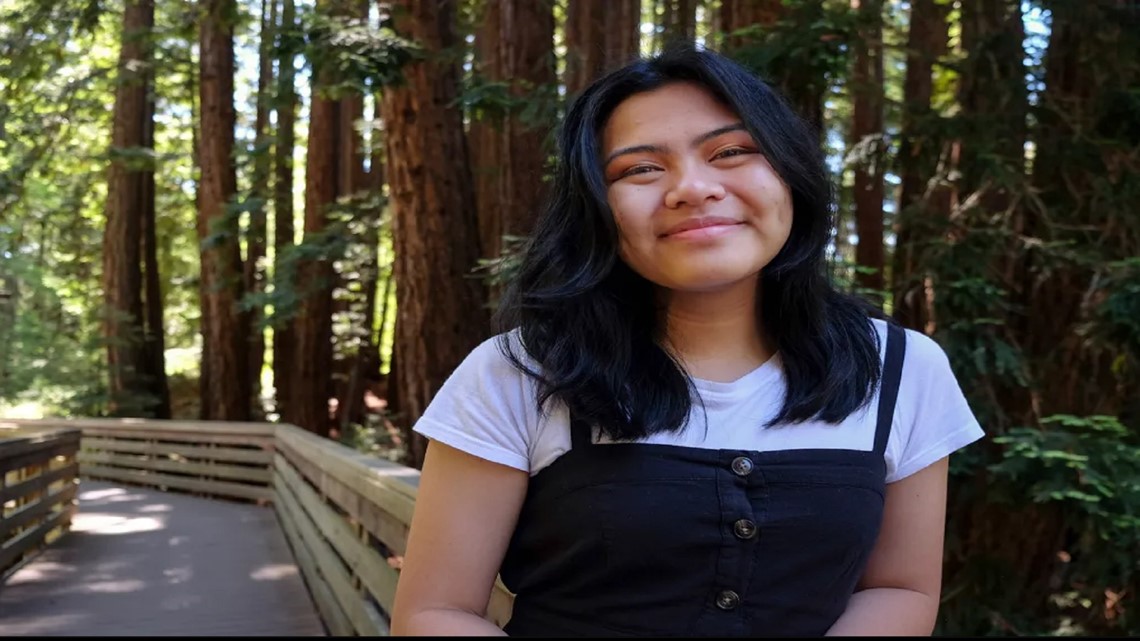
Mariah Angelresza Peralta — UC Santa Cruz
Environmental Science major
Looking back at myself as a freshman, I was very timid to join a lot of spaces on campus. I was very dependent on others to support me, like going to the dining hall or going to class — I hated doing a lot of things alone. And I guess that timidness prevented me from exploring other interests, or other spaces on campus where I feel like I can find a community.
I came from a pretty non-diverse city. My residential college (at UC Santa Cruz) wasn’t that diverse either. I was one of, I would say, a couple people of color in my residential college, and in my high school too. And so I didn’t get to explore that identity at all until I got to college.
Luckily enough, I joined Bayanihan, which is a Filipino organization at UC Santa Cruz. And that definitely provided me with the community that I was missing out on in my first year.
My biggest memory is that I failed my (calculus) series. I failed it. I was like, ‘oh my gosh, I can’t be an environmental science major anymore. Like, what am I going to do?’ I didn’t feel comfortable going to my professor. I didn’t feel comfortable going to the TA. The only person I truly felt comfortable going to was my ate — my mentor in Bayanihan. She was like, ‘Listen, we have these resources available to you not only within the Filipino organization but the school as well. Here they are, seek them out, take advantage of them — you’re paying for them.’ I was like, ‘Oh my gosh, maybe this is going to work out. I’m going to finish the major that I wanted to finish.’
I would say to a woman of color going to UC Santa Cruz or any institution of higher education that ‘There are spaces for you, and they’re made by other students who want to see you succeed and want to create a collective community that is successful and supports you.’ So I would say, ‘Don’t be discouraged with how these classrooms look or how these resources treat you because there are spaces on campus that want to support you and want to see you (be) successful.’
— Interviewed by Carolyn Kuimelis
Claire Tauber — UC Davis
Sustainable Agriculture and Food Systems major
I transferred to UC Davis in the fall of 2020, which was a really interesting time to transfer because it was full-on pandemic Zoom school. I was in a group of students who graduated from community college that first spring of the pandemic. There were a lot of us having conversations like, ‘Should I wait? Should I defer for a year and then transfer?’ Because everything felt so up in the air.
A deciding moment for me was when I called my grandma. And she’s like, ‘Just go to university. What else are you going to do?’
I tried really hard to make friends as much as possible, but it was difficult because being a transfer, you already have the fear of ‘What if I don’t make friends?’ I found it too challenging to form a real connection with anyone online. You miss all the walking to class moments of just chatting with someone when you’re on Zoom. It doesn’t really facilitate casual social interactions.
Once we returned in-person, I was able to make friends because we all were eager to know each other. But it felt kind of fast and furious. Everyone was like, ‘Oh my God, we’re back in person!’ And then about a month later I found myself wondering, ‘Why am I so exhausted? Why do I feel all these emotions?’ And I realized I just went from seeing a max of 20 people a day to seeing 3,000 people a day.
I think the pandemic served a little bit like a mirror, or looking glass, to see the value of college. And in a lot of ways, it has not been worth it just due to the exorbitant cost of school. I’m quite fortunate I have a family that’s helping me pay for college. But even in that case, it still feels like, ‘Why were so many students expected to pay the exact same tuition for something that was so vastly different from what they signed up for initially?’
I think for me, personally, trying to cram so much in such a short span of time led to the risk of burnout. There’s kind of a sense of time lost due to the pandemic and then this desire to wring out every possible opportunity because it’s so expensive and short-lived.
— Interviewed by Emily Margaretten
Luna and Lingappa are fellows with the CalMatters College Journalism Network, a collaboration between CalMatters and student journalists from across California. Kuimelis and Margaretten are contributors to the network. Rashad is a senior fellow with the network. This story and other higher education coverage are supported by the College Futures Foundation.


